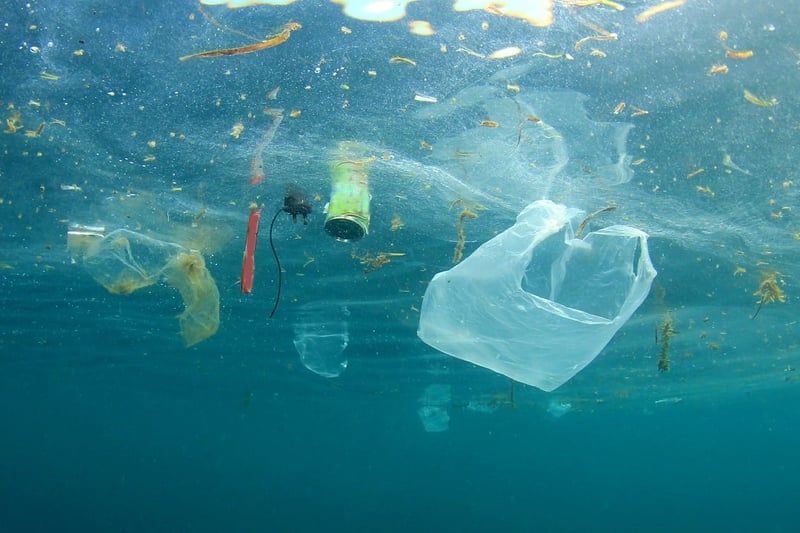
Reducing plastic pollution
Blog
Earth Day 2024 on April 22 is all about reducing our use of plastics for planetary, animal and human health.
We produce a shocking 300-million tons (rougly 661-billion pounds) of plastic waste each year. That’s the equivalent of the weight of the entire global human population! Of that massive number, less than 10% makes it to recycling, the rest is either discarded in a landfill, burned, or just tossed into our environment.
While recycled plastics can be turned into new products from clothing to playgrounds, plastic left in the environment takes hundreds of years to degrade. Even then, they don’t ever completely disappear, they turn into microplastics – tiny plastic fragments that can now be found in every corner of the globe.
Plastic pollution impacts all life – from microscopic animals all the way up the food chain, even to humans. Millions of animals are killed every year from plastic - from mistakenly eating it or getting entangled in it. Humans aren’t immune to the impact of plastic pollution either – from chemicals leaching from our plastic water bottles, to microplastics being found in our food and water, and even our soil and air. While the health impacts of microplastics are at this point unknown, we can all agree that plastic does not belong in the environment.

Plastic pollution along the shoreline. | Photo: Sam Chadwick / Shutterstock
To curb the devastating impact of plastic pollution, we must reduce our dependency on plastic products and implement sustainable management solutions to keep it out of our environment.
7 simple ways to reduce plastic pollution in your life:
-
Use a reusable water bottle and coffee cup! Did you know that 50% of single-use plastic water bottles end up in landfills where they can sit for 400+ years before they decompose. By using a reusable water bottle, you could save an estimated 156 plastic water bottles each year.
-
Participate in community cleanups. Work together with your friends, family, and neighbours to clean up your local beach or park. Or just bring a bag with you on walks or hikes and pick up any trash you find along the way. You’d be surprised how much garbage you can find in nature.
-
Choose products with minimal or no plastic packaging. There are even zero-waste grocery stores across Canada that you can bring your own reusable containers to fill up on bulk goods.
-
Avoid products with microbeads. Microbeads can be found in a variety of products including toothpastes, facial cleaners, textiles and more. These teeny tiny plastic beads may seem harmless, but they can actually be harmful to your skin and end up in our water system, having a devastating impacts on marine life.
-
Shop second-hand! Fast fashion (cheap, trendy clothes that are produced at a fast speed to meet demand) has a devastating impact on our environment. When possible, buy products second-hand or host a clothing swap with friends and family. This is not only budget-friendly, helps encourage better and safer working conditions in supply chains, but also reduces demand for new products and helps minimize waste.
-
Buy sustainable seafood. If you eat seafood, it’s important to do your research to ensure you are supporting companies that employ sustainable fishing methods and are transparent about their environmental impact. Ghost gear has a catastrophic impact on marine life and contributes significantly to the ocean’s plastic problem. In fact, more than 70% of macroplastics by weight are fishing related.
-
Recycle! This might be the most obvious suggestion, but actually less than 10% of plastic makes it to the recycling depot! While local guidelines can differ in terms of what materials are accepted, when we do our part, recycled plastics can be turned into new products giving them a whole new life. Make sure to follow guidelines and recycle!
Spread the word! 📢♻️
Share this post with family and friends and challenge them to reduce their own consumption of plastic products.
Banner photo: Rich Carey / Shutterstock